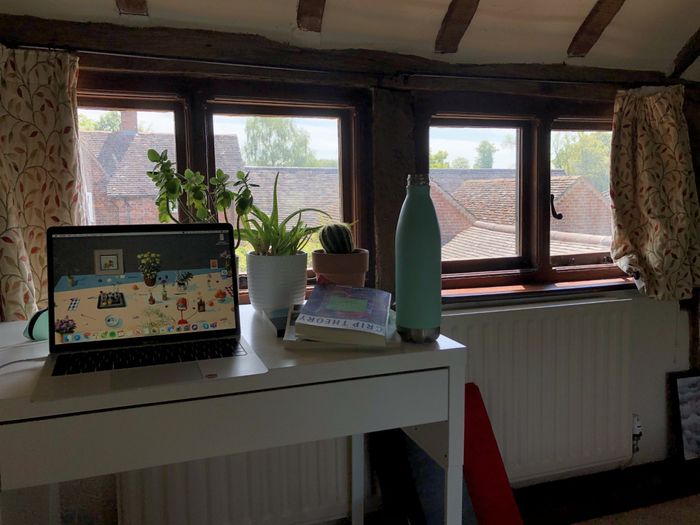Am I never enough?
“I found it quite natural to be aware of others’ mental health, while ignoring the signs of my own deteriorating mental state” writes Isobel Bruce
Content note: This article contains detailed discussion of mental health.

“Sorry, I haven’t read enough”.
Looking at my dissertation supervisor via Zoom, I was already reprimanding myself for my laziness and lack of focus during lockdown. Why hadn’t I been more driven? Why wasn’t I as productive at home as I was at uni? Why do I feel so stupid?
This pattern of thought, and a constant sense of never quite doing enough, is something which I have had to challenge during my first two years at Cambridge. As like many, I found it quite natural to be aware of others’ mental health, while ignoring the signs of my own deteriorating mental state. There is so much emphasis on reaching out to others and having a conversation, but perhaps we need to learn to have better conversations with ourselves.
Speaking to my friends at Cambridge, there is a palpable sense of needing to achieve, and be successful in whatever field they desire to go into. But this drive towards greatness comes with a tendency to overlook how the route towards it might result in great personal loss. It seems natural to work for X amount of hours, or exercise a certain number of days a week, or apply for umpteen internships and ignore the potentially negative side effects. The end result is surely worth it, right? Especially if those around you are also pursuing ambitious goals. To some extent, we are completely unaware of just how damaging stress and personal pressures can be on our mental health simply because we are so focused on what we may stand to gain in the future.
In my first term at Cambridge, I felt more attuned to pressures of work and image than I had ever been before. I vividly remember a third year telling me that they had never seen anyone in the library so much, and my supervisor being impressed (but somewhat aghast) at the vast bibliographies I attached at the end of every essay. In my warped interpretation she was impressed, not concerned, congratulatory, not worried. Similarly, I started regulating food and exercise to an extent I never had before. Despite the weight I lost, and how cold and tired I felt, I refused to admit to anyone else, but more importantly to myself, that there was any issue.
I found myself winding up tighter and tighter, the rules I followed became increasingly strict and somewhat bizarre – I had to get up at a set time, drink a certain number of water bottles before eating, work in the library for at least 6 hours, walk 20,000 steps, do 500 crunches. The list was exhaustive and seemingly unending. All the while I told myself that I could do this, that I was fine, and most importantly that this would all be worth it.
Unsurprisingly, I snapped and spiralled into a very unhappy state. The first step I had to take to get better was admitting that there was a problem. It is something I still struggle to do, to acknowledge that my mental health issues are very much present and not something I can dismiss to the past, but something I must challenge every day. But it is so important that we are aware of our own mental health, as issues cannot be fixed that aren’t acknowledged.
"I have learnt that even when you do find success, the path you took to get there matters almost as much as the end result."
I have learnt that even when you do find success, the path you took to get there matters almost as much as the end result. It is impossible to find joy in things when you never allow yourself to be satisfied with your achievements. We need to practise compassion and kindness towards ourselves as much as we are encouraged to do so towards others. As much as this lockdown has undoubtedly had negative impacts on mental health, it does allow us the space and time to do this. My dissertation supervisor recently expressed the need for “radical self-forgiveness at this time”: but this is a message we need to carry forward into a post-lockdown world.
 Interviews / You don’t need to peak at Cambridge, says Robin Harding31 December 2025
Interviews / You don’t need to peak at Cambridge, says Robin Harding31 December 2025 News / Unions protest handling of redundancies at Epidemiology Unit30 December 2025
News / Unions protest handling of redundancies at Epidemiology Unit30 December 2025 Comment / What happened to men at Cambridge?31 December 2025
Comment / What happened to men at Cambridge?31 December 2025 Features / ‘Treated like we’re incompetent’: ents officers on college micromanagement30 December 2025
Features / ‘Treated like we’re incompetent’: ents officers on college micromanagement30 December 2025 Theatre / We should be filming ADC productions31 December 2025
Theatre / We should be filming ADC productions31 December 2025








